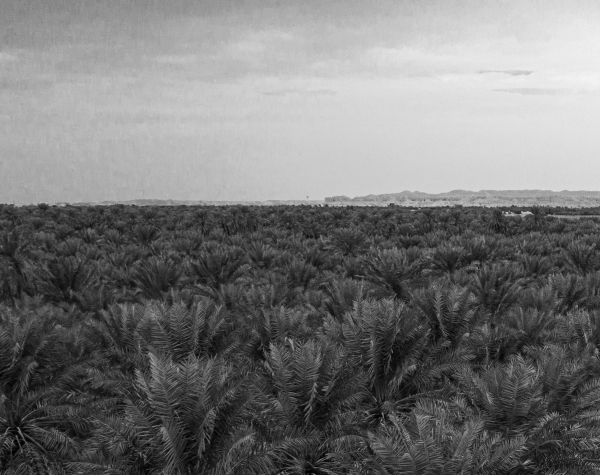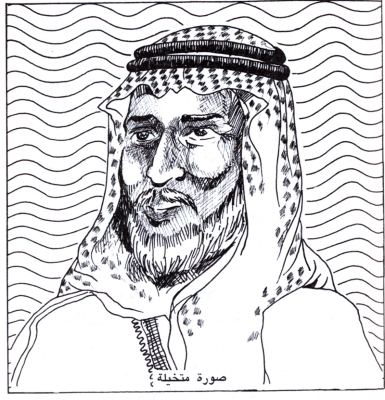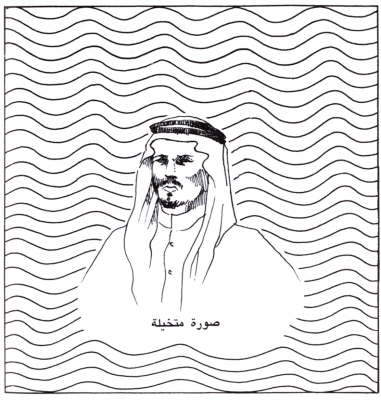
Ahmed Bin Ali Bin Musharraf (eighteenth century - 1868) was a scholar, jurist, and poet who lived during the Second Saudi State. He taught in al-Ahsa and served as a judge there. He authored several scholarly and literary works, including a poetry collection featuring "Jawharat al-Tawhid" and "al-Hamziyah."
Life of Ahmed Bin Musharraf
Ahmed Bin Musharraf was born blind in al-Ahsa, located in the Eastern Province, after his father, Sheikh Ali Bin Hussein Bin Musharraf, moved from Zubarah to al-Ahsa and settled there, as it was a scholarly center at the time.
He grew up and received his education in al-Ahsa. During his childhood, he memorized the Holy Quran and some scholarly texts and studied Arabic sciences under his teacher Hussein Bin Ghanam. He then joined scholarly circles, where he studied Arabic and religious sciences, particularly Hadith and jurisprudence. Afterward, he taught in al-Ahsa, benefiting and educating people. He later moved to Riyadh, where he continued both learning and teaching. He eventually returned to al-Ahsa, where he was appointed as a judge in the late reign of Imam Faisal Bin Turki and the early days of his son Abdullah’s rule.
Ahmed Bin Musharraf's family had an influence on his scholarly and literary character, as it was known for its contributions to knowledge and literature. His broad exposure to literary works and poetry collections from various literary eras, along with his expertise in history, language, and religion, shaped his educational poems and compositions. All of his poetic works were dated, spanning from 1829 to 1866.
Imam Faisal Bin Turki in the poetry of Ahmed Bin Musharraf
Ahmed Bin Musharraf maintained direct contact with Imam Faisal Bin Turki, traveling from al-Ahsa to Riyadh to meet him in person. His poetry captures many of the social and political events of his time, along with a detailed portrayal of Imam Faisal's character in approximately thirty poems that highlight his virtues and ethics. His verses also reflect his leadership style, governance, battles, wars, and victories. Ibn Musharraf’s poetry serves as a historical record, documenting key events and significant moments during the Second Saudi State. One of his elegiac verses on Imam Faisal Bin Turki states:
Wa-Ka'ila Aksar Fima Ba'd Faisal (A voice calls: Cease, for after Faisal),
Lazi Adab Haz fa-Maza Tuhawel (There is no fortune for a man of virtue - why strive further?)
Atarghab fi Nuzm al-Qurayd wa-Jismih (Do you wish to compose poetry while his body)
Muwara bi-Qabr Ghaybateh Janadelh (Lies hidden beneath a grave, concealed by its stones)?
Fa-Qolt: Da'ini In Yakon Mata Faisal (I replied: Leave me, for if Faisal has died),
Fa-Khaliqh Hay wa-ma Mat Na'ilh (His Creator lives on, and his generosity has not perished).
Works of Ahmed Bin Musharraf
Ahmed Bin Musharraf authored several scholarly and literary works, including a published poetry collection featuring didactic poems such as Jawharat al-Tawhid, al-Hamziyah, Ghurar al-Fatawa, and al-Shuhub al-Marmiyah ‘Ala Al-Mu‘attilah wal-Jahmiyah. His works also included poetic compositions praising Imam Faisal Bin Turki. Additionally, he produced an abridged manuscript of Sahih Muslim and a poetic rendering of Ibn Abi Zayd al-Qayrawani’s treatise on Maliki jurisprudence.
Life of Ahmed Bin Musharraf
Ahmed Bin Musharraf died in al-Ahsa.
Related quizzes
Related articles


